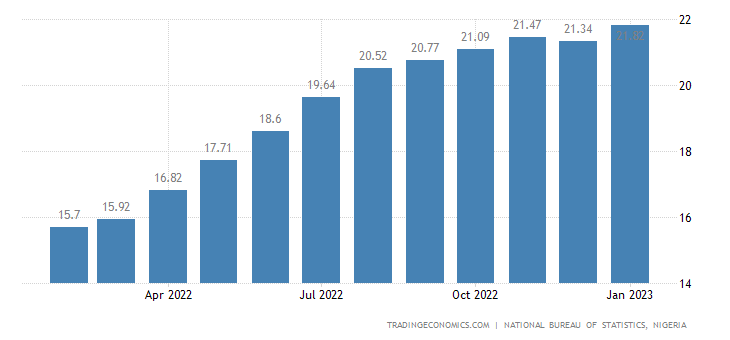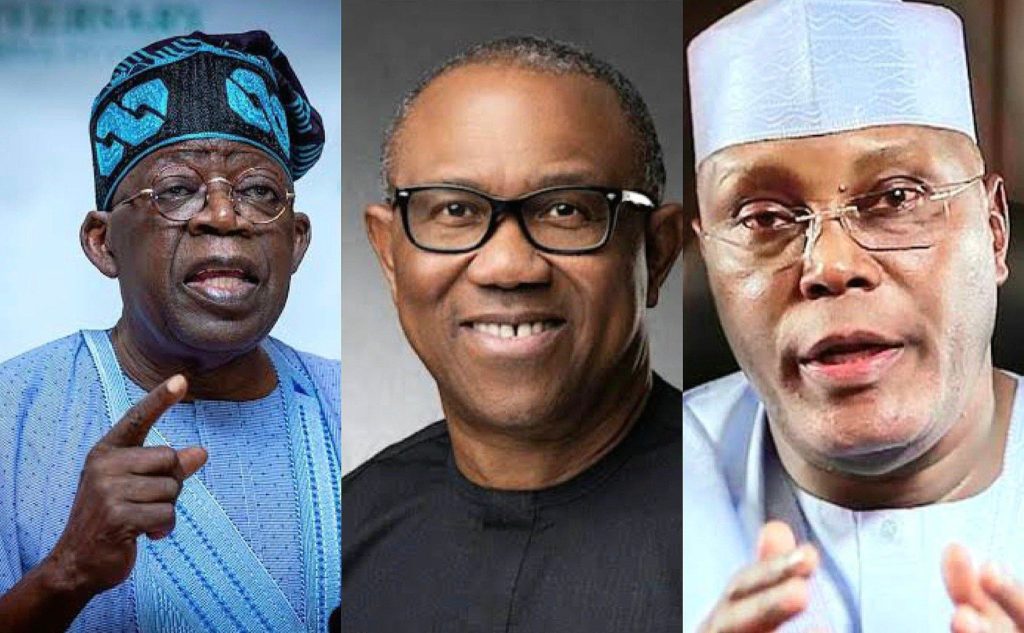As Nigeria approaches a critical juncture, the fate of the All Progressives Congress (APC) hangs in the balance. With the upcoming decision between maintaining the status quo or embracing progress, the country is at a crossroads that will have significant implications for its political future. As voters prepare to cast their ballots in the 2023 presidential elections, the stakes are high for both the ruling party and the opposition, and the outcome will likely shape Nigeria’s trajectory for years to come.
APC, the current ruling party, has been in power since 2015 when it took over from the People’s Democratic Party (PDP), which had ruled for 16 years. The APC came to power on the back of promises to bring about significant economic changes, but the last 7 years have been characterized by a mixed bag of results. With February 25 election, the question on many Nigerians’ minds is whether the APC can truly improve their lives if its candidate wins the 2023 presidential election, especially considering the challenges facing the country.
Before 2015, Nigeria experienced relative stability in its exchange rate, with the naira trading at around 150-170 to the US dollar. However, after the APC took over in 2015, there was a significant devaluation of the naira, which led to a sharp increase in the cost of goods and services in the country. The devaluation was due to a decline in global oil prices and a shortage of foreign exchange.
In addition to the devaluation of the naira, there were also increases in the cost of electricity and fuel, which had a ripple effect on the prices of other goods and services.
Economic Changes After APC Took Over
After the APC took over in 2015, there were some significant economic changes, including the implementation of the Treasury Single Account (TSA) policy, which aimed to consolidate all government accounts into a single account to enhance transparency and accountability. There were also efforts to diversify the economy through initiatives such as the Agriculture Promotion Policy, which aimed to increase food production and reduce imports.
However, the economy also experienced some challenges during this period, including a recession in 2016 and 2017, as well as inflation, high unemployment rates, and a significant increase in the country’s debt profile.
It is true that during the seven years of APC’s presidency, poverty in Nigeria increased. According to data from the National Bureau of Statistics, the number of Nigerians living in poverty increased from 86.9 million in 2010 to 98.9 million in 2020, a rise of 13.8%. The number of Nigerians living in poverty rose by 35 million in 2022.

The inflation rate increased to 21 percent in 2022, compared with an average of 10.6 percent for emerging and developing economies. The exchange rate from Naira to Dollar increased from N197 to N740 in 2022. The pump price of petrol increased from N87 in 2015 to N300 in 2022. A bag of rice soared in price from N8,000 in 2015 to N40,000 in 2022.
Nigeria was ranked 103 out of 121 countries in the 2022 Global Hunger Index(GHI). In six years, Nigerians went from being the 78th happiest people on earth to be the 116th, according to the World Happiness Report released by the United Nations in 2021.
The Nigerian Economic Summit Group (NESG) has projected that the country’s unemployment rate will hit 37 percent in 2023. The group in its 2023 Macroeconomic Outlook report titled “Nigeria in Transition: Recipes for Shared Prosperity, said the country’s poverty headcount will also rise to 45 percent. The unemployment rate in 2020 reached 33.28 percent.
According to a World Bank Report on Nigeria’s Poverty Assessment 2022, four in 10 Nigerians live below the national poverty line. This is a worrying trend that needs to be addressed by whoever is in power.
Will Nigerians Give APC a Third Chance?
Can the APC improve the lives of Nigerians if their candidate wins the 2023 presidential election? That will depend on several factors. The party’s manifesto and policies will be critical in determining its ability to address the country’s challenges, including poverty, unemployment, and insecurity. The boggling question is whether Nigerians will give the party a third chance.
However, it is important to note that the issue of poverty in Nigeria is complex and may not be solely attributed to the policies of the APC. Factors such as corruption, insecurity, and poor economic planning also contribute to the problem. Therefore, it is unfair to place the blame solely on the ruling party.
Nigeria’s Economic Changes Before 2015
On the other hand, the People’s Democratic Party (PDP) is accused of destroying the country’s economy during its 16 years in power. While it is true that the PDP was in power during a period of economic decline, it is also important to note that the global economic crisis of the late 2000s also played a role in Nigeria’s economic struggles. Furthermore, the PDP has since acknowledged its shortcomings and has promised to take steps to address them.
Before 2015, Nigeria experienced a period of sustained economic growth, with the country’s Gross Domestic Product (GDP) growing at an average annual rate of 6.8 percent between 2000 and 2014. However, the economy was heavily dependent on the oil sector, which accounted for over 70 percent of government revenue and over 90 percent of Nigeria’s exports.
During this period, there were concerns about the country’s lack of economic diversification, as well as issues with corruption, infrastructure deficits, and insecurity in some parts of the country.
Both APC and PDP have had their chances at the presidency since 1999 and largely failed. Nigerians want something better and intend to make their decision on Saturday at the polls.
The Contenders
The three leading contenders, Peter Obi of the Labor Party (LP); Bola Tinubu of APC, and Atiku Abubakar of the People’s Democratic Party (PDP) crisscrossed the country in heated campaigns. generating intense intrigue and speculation, with the country holding its breath to see who will emerge as the ultimate winner in February 25 election.
With tensions mounting and concerns about violence and insecurity, the world is watching to see what the outcome will be and what it will mean for the future of Nigeria. But many Nigerians are hopeful that new leadership will bring about positive changes to the country’s economy.

Can APC Truly Improve Nigerians’ Lives?
The potential impact APC will make on the lives of the Nigerian people if its candidate wins the election, is one of the major topics of discussion. Early projections indicate Obi is the preferred candidate by most Nigerians.
Overall, the economic changes in Nigeria before 2015 and after 2016 demonstrate the complex challenges facing the country, including issues with corruption, infrastructure deficits, and economic diversification. While there were some positive initiatives introduced by both the PDP and APC, more needs to be done to address these challenges and promote sustainable economic growth and development in Nigeria.
It is also important for the APC to learn from its mistakes and address the issues that have contributed to the rise in poverty during its time in power. But that will depend on the outcome of tomorrow’s election.
With the mood of Nigerians in the build-up to tomorrow’s election, it is clear that they do not want to repeat the same mistake a third time
